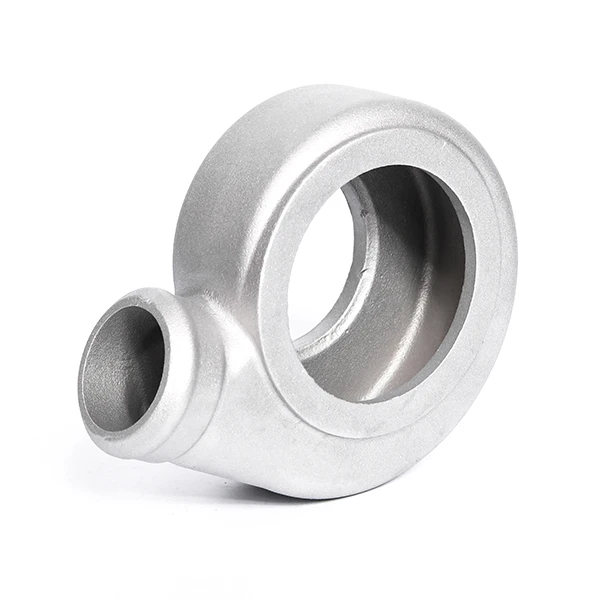Mobile:+86-311-808-126-83
Email:info@ydcastings.com
stainless steel foundry
Understanding Stainless Steel Foundry The Backbone of Modern Manufacturing
Stainless steel foundries play a crucial role in the manufacturing industry, providing essential components across various sectors, including automotive, aerospace, medical, and construction. These foundries specialize in casting stainless steel, a versatile alloy known for its corrosion resistance, strength, and aesthetic appeal. In this article, we will explore the processes, advantages, and significance of stainless steel foundries in contemporary production.
The Casting Process
The stainless steel casting process generally involves several key steps pattern making, molding, melting, pouring, and finishing. Initially, a pattern is created, which serves as a template for the casting. Patterns can be made from various materials, including metal or wood, depending on the production volume and complexity of the part being cast.
Next, the pattern is used to create a mold, typically from sand or metal. The choice of molding material is crucial as it affects the final properties of the cast part. Once the mold is prepared, stainless steel is melted in a furnace. The melting process can involve electric arc, induction, or crucible furnaces, with temperatures often exceeding 1,500°C (2,732°F).
After the stainless steel reaches the appropriate molten state, it is poured into the mold. The cooling and solidification phases follow, during which the metal takes the shape of the mold. Once cooled, the mold is removed, and the cast part undergoes various finishing processes, including grinding, polishing, and heat treatment, to achieve the desired specifications.
Advantages of Stainless Steel
Stainless steel is favored in manufacturing for several reasons. Its primary advantage is its excellent resistance to corrosion, which extends the lifespan of components in harsh environments. This property is particularly valuable in industries such as food processing and marine applications, where sanitary conditions and durability are paramount.
Moreover, stainless steel exhibits high strength and toughness, making it suitable for applications requiring structural integrity. It also has a distinct aesthetic appeal, which, combined with its durability, makes it ideal for architectural and decorative applications.
stainless steel foundry

Another significant benefit of stainless steel is its recyclability. As sustainability becomes increasingly important in manufacturing processes, the ability to recycle stainless steel reduces waste and conserves resources. Stainless steel foundries often incorporate recycled materials into their processes, further enhancing their environmental credentials.
The Role of Stainless Steel Foundries
Stainless steel foundries are vital to the economy and technological advancement. They provide precision-engineered components that are integral to countless products and systems. From the automotive industry, where parts such as exhaust systems and fuel tanks require both strength and corrosion resistance, to the medical sector, where surgical instruments must be sterile and durable, the applications of cast stainless steel are vast.
Moreover, foundries contribute to job creation within local economies. Skilled workers are needed for a variety of tasks, including metallurgical engineering, quality control, and machinery operation. The continuous demand for stainless steel components drives innovation and enhances skill development within the labor force.
Challenges Faced by Stainless Steel Foundries
Despite their importance, stainless steel foundries face several challenges. The rising cost of raw materials and the increasing competition from low-cost manufacturing countries can strain profit margins. Additionally, foundries must navigate stringent environmental regulations that demand compliance with emissions and waste management standards.
Technological advancements are also reshaping the industry. Automation and digitalization are improving efficiency but require significant upfront investments. Foundries must balance these innovations with traditional craftsmanship to maintain their quality and reputation in the market.
Conclusion
In summary, stainless steel foundries are fundamental to modern manufacturing, providing superior materials that meet the evolving needs of various industries. Their expertise in casting, combined with the inherent properties of stainless steel, allows them to produce components that enhance the performance and longevity of products. As the industry confronts challenges and embraces technological innovations, the significance of stainless steel foundries will only continue to grow, cementing their role as a backbone of contemporary production processes.
-
Why Should You Invest in Superior Pump Castings for Your Equipment?NewsJun.09,2025
-
Unlock Performance Potential with Stainless Impellers and Aluminum End CapsNewsJun.09,2025
-
Revolutionize Your Machinery with Superior Cast Iron and Aluminum ComponentsNewsJun.09,2025
-
Revolutionize Fluid Dynamics with Premium Pump ComponentsNewsJun.09,2025
-
Optimizing Industrial Systems with Essential Valve ComponentsNewsJun.09,2025
-
Elevate Grid Efficiency with High-Precision Power CastingsNewsJun.09,2025











